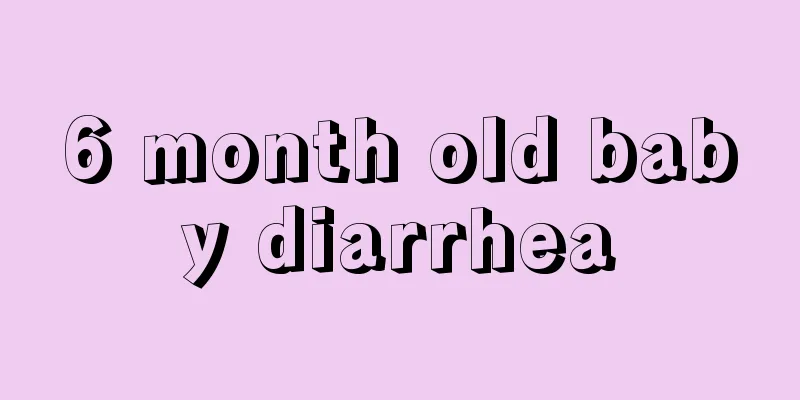How much milk does a 100-day-old baby eat?

|
In some places in China, when babies are born, there will be a big banquet during the day to celebrate the baby's 100th day. 100th day is a little more than three months. At this time, the baby is mainly breastfed. During this period, the baby cannot eat complementary food, so the amount of milk consumed every day is relatively large. The amount of milk consumed by the baby is closely related to the baby's weight. Let's take a look at how much milk the baby consumes during the day. How much milk does a 100-day-old baby eat? 1. According to general standards, for babies weighing 3-3.5 kg at birth, it is appropriate to drink about 600-800 ml of milk every day during the period of 1-2 months, divided into 7 times a day, 100-200 ml each time. If fed 6 times, 140 ml each time. Don't overfeed. 2. The daily milk intake of babies aged 2-3 months should be limited to less than 900 ml. The calories generated by 900 ml are 2427 kilojoules, which is enough for the baby's needs. Feed 6 times a day, no more than 150 ml each time. If fed 5 times a day, no more than 180 ml each time. 3. Babies aged 3-4 months should drink 200 ml of milk each time and be fed 5 times a day. If you feed the baby 6 times a day, the amount each time should not exceed 200 ml, 180 ml is more appropriate. To prevent your baby from gaining weight, keep the total daily milk volume within 1000 ml. 4. The daily milk intake for babies aged 4-5 months should still be maintained at about 1000 ml, because the weight gain of babies at 4-5 months is not much different from that at 3-4 months, so they can be fed in the same way. 5. The amount of milk a baby drinks in a day between 5 and 6 months old. For bottle-fed babies, the amount of milk should be appropriately controlled at this time. If the baby is allowed to eat as much as he wants, he will grow too fat. Generally speaking, the total amount of milk a baby drinks per day should not exceed 1000 ml. 6. Babies aged 6-7 months can start adding milk substitutes. At this time, the baby's food is still mainly milk, and the baby's daily milk intake is about 700 ml. How to increase your baby's milk supply Babies of different ages have different nutritional requirements. As they grow older and their activity level increases, their nutritional needs will also increase, and the amount of milk must also increase. It cannot remain unchanged. If the baby's nutritional needs are not met, it will affect the baby's physical development. If the milk supply is insufficient, the baby may become hungry easily, and experience adverse reactions such as sleep, mood, and slow development. So how can we judge whether the baby's milk supply is sufficient and increase the milk supply for the baby correctly? To determine whether the baby is getting enough milk, you can observe the following aspects: if the baby's weight and height have not increased after a period of continuous feeding, or the baby has fallen behind the height and weight that should be expected for this age group, or the frequency of bowel movements has decreased and the stool is drier, it means that the baby is not getting enough milk and you need to increase the amount of milk for the baby. |
<<: How to increase your baby's milk supply
>>: How much milk should a baby have during the confinement period?
Recommend
Baby recipes home cooking
Our own babies have started to eat complementary ...
How to enhance children's immunity
Children are in a very important stage of growth ...
My seven-month-old baby can't sit steadily. What's going on?
Mom and dad play a very important role in the bab...
What should I do if one side of my baby's nose is blocked?
Sometimes when we are taking care of the baby, we...
How many days does it take for the rash to appear?
Roseola infantum is a very common disease charact...
Should baby food be refrigerated or frozen?
The baby's complementary food must be eaten u...
What's the matter with the white spots on the baby's fingernails?
Many parents are very careful and observe the sma...
What should I do if my child always has a hunchback?
It is a common phenomenon for children to have hu...
Methods to improve baby's cold, cough and phlegm
Cold and cough are very common. Cold can easily c...
The child suddenly has leg pain and cannot walk
Many parents have reported that their children ha...
What to do if your baby has colic?
Colic is a symptom that often occurs in infants. ...
My baby has a brown birthmark on his face. Is it harmful?
In addition to paying attention to the baby's...
How long does it take for a baby to take cod liver oil?
Every time when the family hires a confinement na...
What should I do if my child’s hair doesn’t grow long?
Mothers with children at home are often troubled ...
What is the reason for baby vomiting after eating?
Parents need to pay special attention to their ba...









